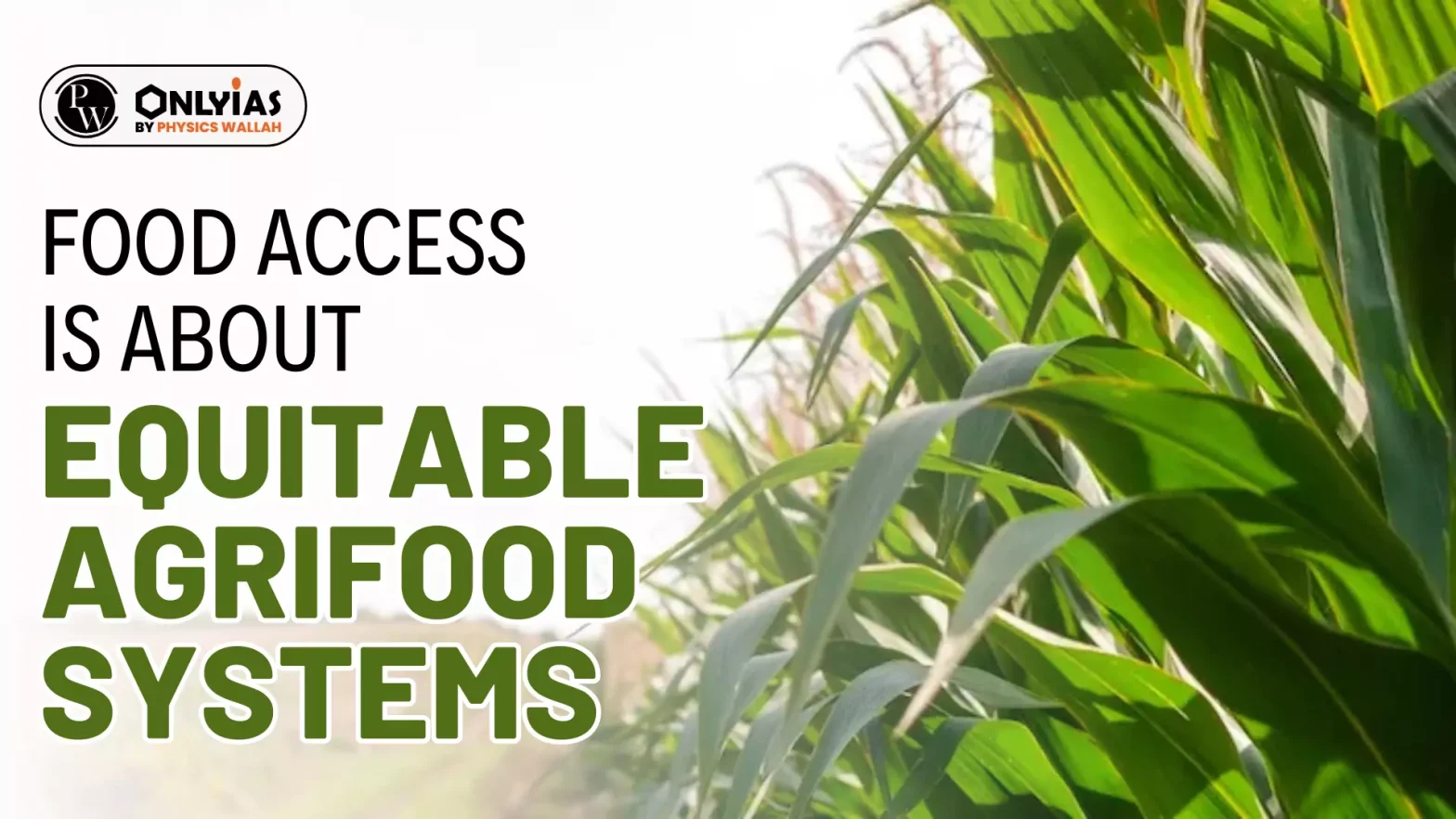World Food Day 2024, observed on October 16, focuses on the theme “Right to Foods for a Better Life,” emphasising access to safe, nutritious, and affordable food for all.
Food Security Issues in India
- The FAO estimates that 733 million people face hunger, highlighting the urgent need for action.
Also Read: World Food Day 2024
- India ranks 105th in the Global Hunger Index. The National Food Security Act (NFSA) of 2013 supports over 800 million citizens, indicating significant reliance on government food support.
Enroll now for UPSC Online Course
Initiatives Taken
- The National Food Security Act (NFSA) of 2013 is a cornerstone, providing food entitlements to over 800 million citizens.
- Green Revolution has transformed India from a food-deficient to a food-surplus nation, supported by effective policies and advancements in agricultural research from institutions like the Indian Council of Agricultural Research.
- Recent initiatives include the distribution of fortified rice, approved by Prime Minister Narendra Modi, to enhance nutrition from July 2024 to December 2028.
- The FAO, IFAD, and WFP are partnering with the Government of India to uphold the right to food, essential for healthy, productive lives free from hunger and malnutrition.
Challenges in India’s Agricultural Sector
- Smallholder Farmer Challenges: Approximately 82% of India’s 93.09 million agrarian households are small and marginal farmers facing productivity challenges and rural livelihood issues.
- Natural Resource Degradation: Overusing groundwater and reliance on chemical fertilisers degrade soil health. Improving water management and soil practices is critical for sustainability.
- Fragmented Landholding: Small landholdings hinder the adoption of modern farming techniques, reducing productivity. Access to appropriate technology is essential.
- Market Access: Many smallholder farmers struggle with market access due to infrastructure and supply chain inefficiencies. Enhancing market links can increase incomes and reduce food waste.
- Rural Poverty and Inequality: Addressing financial service access, technology, and modern irrigation for small and marginal farmers is vital for improving agricultural productivity and livelihoods.
- Climate Change Risks: Climate change poses risks like erratic weather patterns. Implementing sustainable practices, such as water conservation and soil restoration, can enhance resilience in farming communities.
Way Forward
- Empowerment of Smallholder Farmers: Provide education, technology, financial support, and resources to vulnerable communities to create a sustainable agricultural system ensuring food security and rural prosperity.
- Right to Food for All: The Right to Food extends beyond agriculture, emphasising that access to safe, nutritious, and affordable food is a fundamental human right for all, including non-agricultural households.
- Resilient Food Systems: Food availability for non-agricultural households depends on a resilient food system. Addressing food inequality and ensuring access to nutritious food, especially in urban areas, is essential.
- Social Safety Nets: Strong safety nets and market interventions are crucial for stabilising prices and supporting vulnerable populations.
- Public Distribution System (PDS): India has made significant progress in ensuring food access for both agricultural and non-agricultural households. Continued efforts are needed to address inequalities and ensure everyone benefits from agricultural advancements.
- Collective Responsibility: Food access involves building equitable and sustainable agrifood systems. The collaboration between FAO, IFAD, WFP, and the Government of India highlights our shared responsibility to achieve food security.
Check Out UPSC Modules From PW Store
Conclusion
The current agricultural practices are unsustainable, necessitating reforms. Transitioning to sustainable methods, empowering smallholder farmers, and ensuring equitable food access are crucial for achieving long-term food security and environmental health.
![]() 16 Oct 2024
16 Oct 2024
